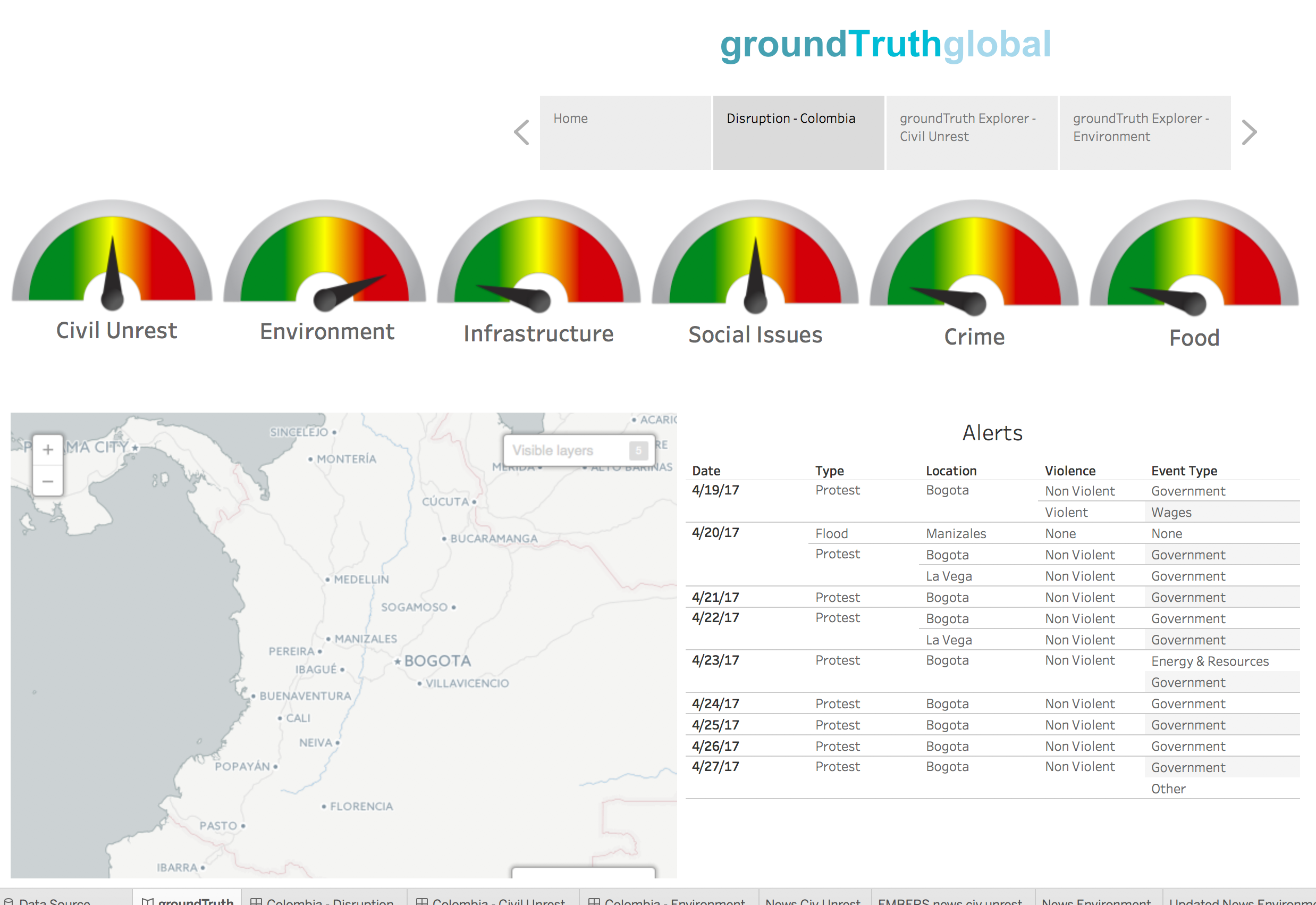
COVID-19 Violence & Response Tracker
In any conflict situation, there are two sides to the story: one that highlights the worst of humanity and the other that points to resiliency and hope. That’s why we’re working to create the most comprehensive COVID-19 Violence and Response Tracker in the world right now.
But we need your help. The harm caused by violence or the threat of violence is not just physical. It has profound impacts on mental and social well-being. That’s why crowdsourcing both the problems and their corresponding peacetech solutions is vital to providing the clearest picture of COVID-19 related violence.
Using the form below, you can submit articles, social media posts, videos, maps, memes, websites, or events you’ve witnessed yourself. These findings will be made publicly available via our website, partner websites, social media, and other publications, for use by anyone designing local or global responses to the crisis.
In this time of uncertainty, we know one thing is for certain: we are stronger together.

Esri Terrorist Attacks Storymap.
In recent years, an increasing number of terrorist attacks have shocked communities around the world, and many of the worst attacks have occurred in countries like Nigeria, Kenya, Somalia, and Bangladesh, as well as in war-torn locales like Iraq, Syria, and Afghanistan.
The Terrorist Attacks Storymap, a collaboration between Esri Story Maps and PeaceTech Lab, uses crowdsourced data from Wikipedia to present a chronology of terrorist attacks around the globe. Wikipedia moderators include experts in the field of global conflict and terrorism, and the pages driving this story have been revised thousands of times since the start of 2016. As a result, the quality of the data on this map is constantly improving.
As with any crowdsourced data, the map may display spurious or objectionable data, for which Esri and PeaceTech Lab hold no responsibility. Similarly, the definition of terrorism is subjective and, in the case of this map, is determined by the contributing community.
If you dispute an event or observe grammatical errors or misspellings, we encourage you to submit revisions to Wikipedia via the “Improve the Map” button in the About section of the map. You can learn more about the Wikipedia editing process here.

The PeaceTech Wiki.
The PeaceTech Wiki is a free learning resource developed by PeaceTech Lab and the team of international technologists who support peacebuilders in our network. As we come across tools that can be used for positive social change, we share them on the Wiki to spread peacetech near and far.
Blogs and Bullets.
PeaceTech Lab partnered with the United States Institute of Peace to explore how to use new analytical tools to understand the power of online discourse in both promoting and preventing violent conflict. We co-hosted six major conferences, four in Washington D.C. from 2010 - 2014 and two at Stanford University in 2011 and 2013.
These meetings brought together a range of leading academic and industry experts to evaluate the Arabic, Russian, and Persian language blogospheres and conduct research into the role of new media in contentious politics. The events were held in partnership with George Washington University, Harvard University’s Berkman Center for Internet & Society, and Morningside Analytics.
2016 Events and Reports
Report: Blogs & Bullets IV: How Social Media Undermines Transitions to Democracy
2015 Events and Reports
Event: After the Dust Settles: Social Media in Political Transitions
2014 Events and Reports
Event: Twitter Evolutions: The Changing Role of Social Media in War and Protest
2013 Events and Reports
Report: Blogs & Bullets III: Syria's Socially Mediated Civil War
2012 Events and Reports
Event: Groundtruth: New Media, Technology and the Syria Crisis
Report: Blogs and Bullets II: New Media and Conflict after the Arab Spring
2011 Events and Reports
Event: Sifting Fact from Fiction: The Role of Social Media in Conflict
Event: Blogs & Bullets: Social Media and the Struggle for Political Change
2010 Events and Reports
Report: Mapping the Russian Blogosphere
Report: Advancing New Media Research
Event: Blogs and Bullets: Evaluating the Impact of New Media on Conflict

GroundTruth Global
Combining human and machine intelligence to anticipate social and economic disruption worldwide.
GroundTruth is a SaaS solution providing early warning of social and economic disruption due to volatility in fragile and emerging economies.
Real-time Insight for Peacebuilding
GroundTruth serves peacebuilders and their missions by providing:
Real-time alerts and visibility into local conditions
Continuous updates of disruption indicators for identification of risk factors
Expert commentary and trend analysis
Resources to respond proactively to potential conflict
GroundTruth goes beyond indices and other risk assessment tools by combining multi-lingual processing, deep learning, and predictive analytics with a range of big and local data sources to provide insight into events as they unfold.
The platform integrates sophisticated data science capabilities with connections to local networks to provide a valuable early warning and response mechanism for organizations worldwide.
The Cost of Instability
The increasing availability of internet, social media, and foreign direct investment in fragile economies brings both great opportunity and great risk for organizations operating in these countries.
Business Costs.
Safety of Employees and Families
Supply Chain Disruption
Manufacturing Disruption
Service Disruption
Human Costs.
Harm to Citizens and Communities
Violent Extremism
Mass Migration
Disease Outbreak

Election Violence Prevention.
PeaceTech Lab worked to mitigate the risk of election-related violence in the lead up to, during, and immediately following the 2017 Kenyan elections.

Early Warning and Response
PeaceTech Lab partnered with Mercy Corps to implement the Kenya Election Violence Prevention and Response Program (KEVP). This initiative, funded by the U.S. Department of State, was designed to mitigate the risk of election-related violence in the lead up to, during, and immediately following the 2017 Kenya elections.
Together with Mercy Corps, the Lab supported the ongoing efforts of Kenyan civil society organizations across Kisumu, Nakuru, Nandi, and Nairobi counties to strengthen resiliency again political manipulation within youth and communities to ensure a peaceful election.
PeaceTech Lab served as the technology partner on the project by implementing an SMS platform in all four counties that served as an early warning and response system for communities to report cases of election-related tension, rumors, hate speech, and brewing violence. The Lab worked with community leaders to develop targeted peace messaging via SMS to respond to early warning messages in areas that were most at-risk for violence.
PeaceTech Lab also monitored the use of hateful language on social media by analyzing and contextualizing terms used to promote hate against individuals, candidates, and communities. Our monitoring and analysis assisted verified response hubs and security officials in understanding how to respond to hate speech on social media.
Read more about our work to prevent election-related violence in Kenya on U.S. News and World Report and Peace News.
Kenya Election Timeline.
PeaceTech Lab tracked potential violence-triggering events throughout Kenya's election season to provide an effective response to identified conflict hot spots.







